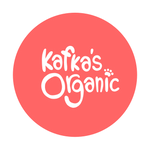Finding the Best Dietary Fats for your Dogs

Finding the Best Dietary Fats for your Dogs
Join us as we break down some of the best Omega-3’s for dogs, and the difference between the Omega-6’s in Flaxseed Oil and Safflower oil. What they are, what benefits they provide, and why they should be added to your pet's food!
What Are Dietary Fats, And Why Are They Important?
Dietary Fats are a concentrated form of energy - providing your pets more than twice the amount of energy as carbohydrates and protein! Fatty acids are the building blocks of dietary fats, and our pets need certain fatty acids added into their diet because their bodies cannot produce them. Specifically, these are called “Essential Fatty Acids” and are divided into two groups; Omega-3’s and Omega-6’s.
There are many health benefits to making sure dietary fats are included in your pet's food. These include:
- hormone regulation
- blood pressure control
- helping fight inflammation
- support healthy skin & coat
- allergy relief
- promoting healthy joints
- added bonus: working with probiotics to boost beneficial bacteria in the gut

The Difference between Omega-3’s and Omega-6’s
We hear about Omega-3’s more often than Omega-6’s, but both are equally important to your dog's overall health.
Omega-3 Fatty Acids are part of something called the phospholipid bilayer, this is the fundamental structure that makes up the cell membranes in your dog. They help regulate cellular communication in every area of the body. Omega-3’s play a large role in forming brain matter and are the foundational base of pro and anti-inflammatory compounds.
Omega-6 Fatty Acids have been known to help with growth & development, immune hormone production, blood clotting, brain health, the stimulation of skin and hair rejuvenation, maintaining bone health, regulating your pets metabolism, and maintaining the reproductive system.
However, when imbalanced in the body, Omega-6's produces immune hormones that increase inflammation, this causes skin issues, aggravates your pet's allergies, and will feed into any possible inflammatory disease your pet may have.
Balancing your Omega’s is a crucial part of keeping your pet's immune system healthy, and while it may seem overwhelming we break down some of our favorite oils to help keep your pet balanced, happy, and healthy.

Fish Oil
Salmon Oil is the most common omega-3 for both dogs & cats - However, there are other sources, such as anchovy, krill, calamari (squid), cod, and even algae oil!
Since there are so many options we recommend finding oil that is wild-caught and is a smaller source such as krill or anchovy so the natural ocean toxins will be minimal. Whatever source you choose, make sure that you keep your oil refrigerated so it doesn’t go rancid.
We recognize the critical role omega-3’s have in treating and preventing disease. Our Fresh Food Meals for dogs and cats are formulated with fish oils to make sure there is a healthy balance in your pets daily diet.
Flaxseed Oil for Dogs
Flaxseed Oil is a plant-based (and less stinky) option, unlike fish oil, which is a protein-based Omega-3. Being a superfood, flaxseed oil is rich in both omega-3 and omega-6 properties. Being high in the omega-6 fatty acid Linoleic Acid, flaxseed supports and improves your pet's health.

Linoleic Acid, a fatty acid in omega-6’s, supports skin hydration, reduces inflammation, supports healing, and aids your pet's immune system with seasonal allergies.
Most pet foods are already very high in Omega-6’s so making sure you have a complementary balance of Omega-3’s and Omega-6’s in your pet's diet is important. Our recipes are formulated with your pet's health in mind and are optimized to offer the balance in omega’s your pet needs.
What is Safflower Oil
Safflower is also a plant-based omega-6, similar to flaxseed oil. The fatty acids in safflower are essential support for a strong heart, shiny coat, and healthy joints! Also a contributor of linoleic acid, this fatty acid promotes skin hydration, reduces inflammation, supports healing, and can aid your pet's immune system with seasonal allergies.
While sourcing safflower might be a bit more difficult than flaxseed oil & fish oil, we make sure safflower is present in our Fresh Food recipes to continue supporting your pet's health.
So Which One Do You Choose?
By offering a rotational combination of these dietary fats throughout the weekly course of your pet's diet you are helping improve immunity, decrease inflammation, support healthy skin, and a shiny coat.
Remember to keep your oils in the fridge so they stay fresh longer and don’t go rancid.
If deciding which Omega to offer first seems a little intimidating, we have you covered!
Our scientifically backed Fresh Food Formulas make sure to balance fish oils, organic flaxseed oil, and organic safflower throughout our different recipes, optimal as a rotational diet.
Dietary Fats + Fresh Food = Kafka’s Organic
When simple, natural, whole ingredients are cooked at low temperatures this allows the dietary fats to be naturally present in your pets food. Kafka’s Organic has optimized these dietary fats in your pets food so your pet can have the full advantages these digestible nutrients can offer. With no preservatives, additives, or fillers to get in the way, our meals are balanced and complete according to AAFCO guidelines!




Leave a comment